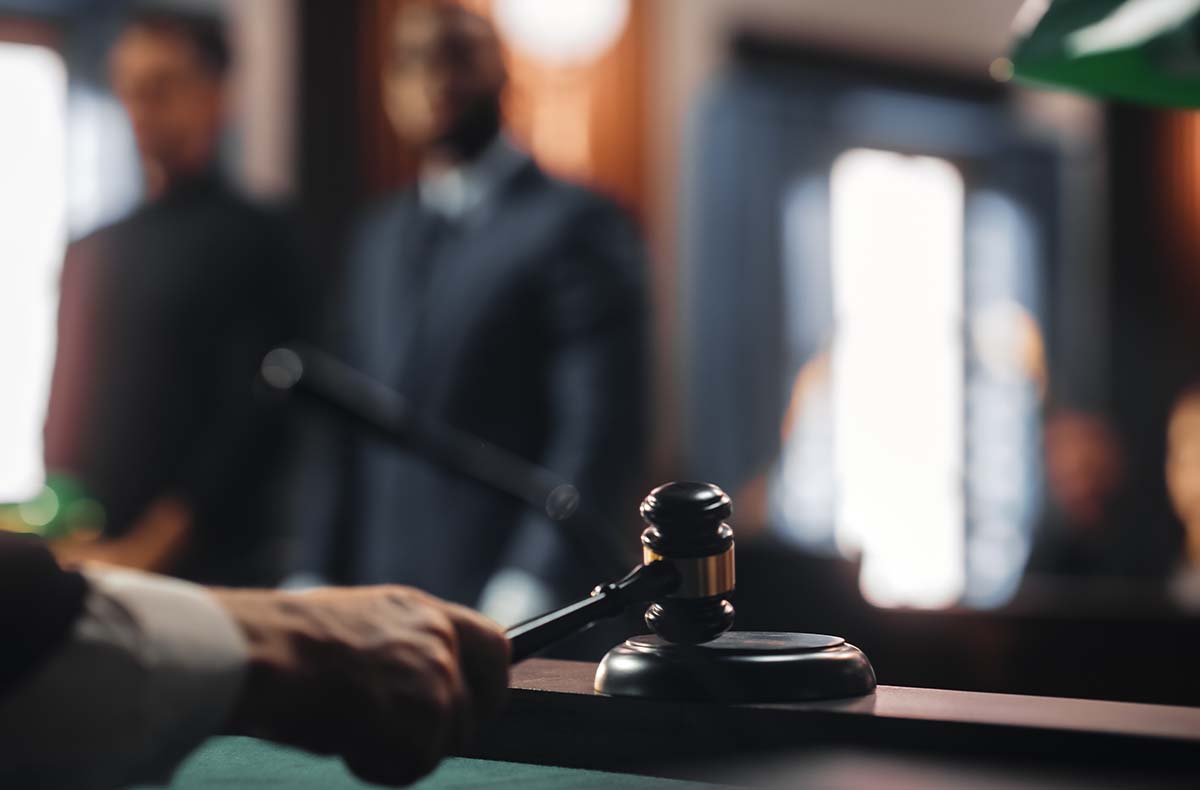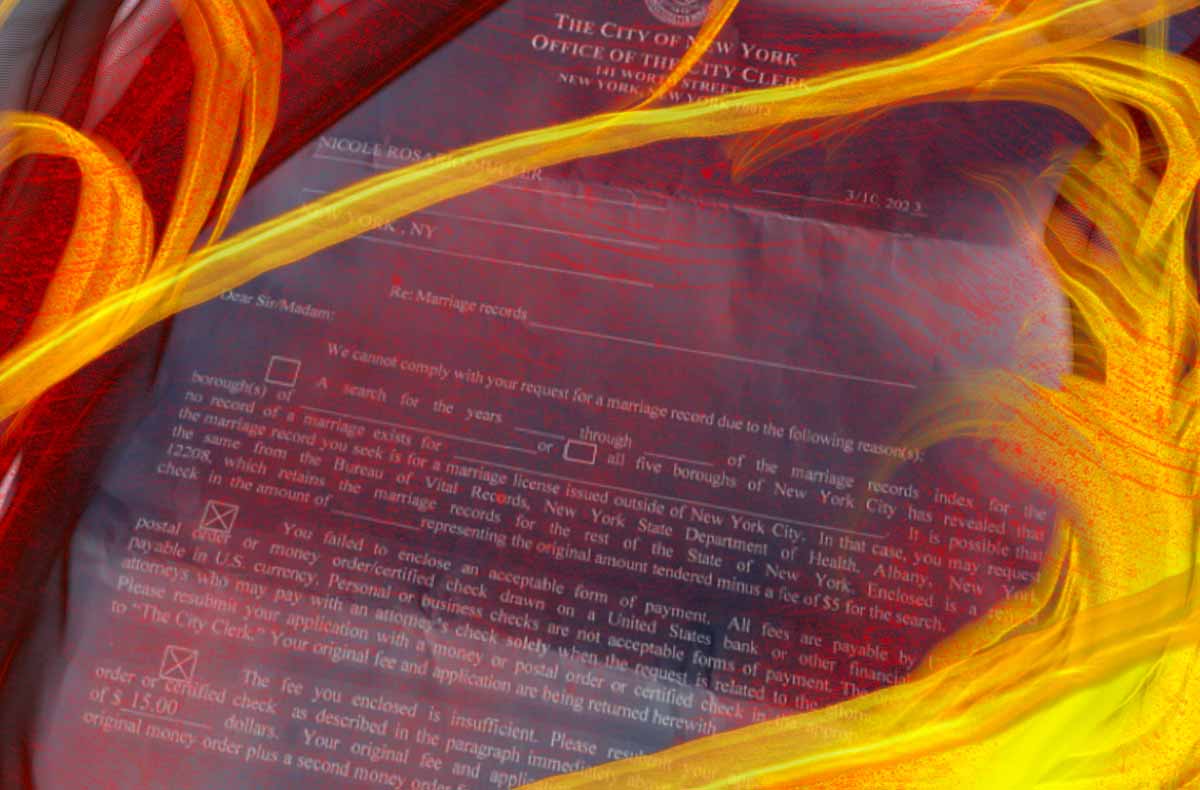
I’m a little late to the party on this—a couple weeks, in fact. But to be honest, I somehow missed the courtroom saga of the Johnny Depp-Amber Heard trial entirely, except for a few uncontextualized clips I saw on social media. Reading through Diana Bruk’s nuanced article on the trial a couple weeks back was one of the first real exposures I’d had to the saga; I’m grateful I got this from someone who was thoughtfully engaging with the gray areas of this uncomfortable public reckoning over a private relationship.
From my childhood, I have strong memories of one of the first court cases to grip the public’s interest as modern “infotainment”—I’m talking, of course, about the O.J. Simpson trial. Everyone was following the case, from my prepubescent self and my classmates to our teachers and our parents. We’d been rapt since the very beginning, having all watched the Bronco chase, which happened on a Tuesday in June when we were already out of school. I still remember a year and some change later in the fall, when someone announced the verdict during recess: some kids cheered, others scoffed, but without a doubt, the whole playground reacted.
It’s hard to resist a good court case. They are inherently dramatic. Watching a trial unfold and witnessing attorneys work their craft can be fascinating—literature, television, and cinema tend to agree. From Atticus Finch to Ben Matlock, lawyers have provided some of our best fictional heroes. Add real life intrigue to an already interesting setting, well, people are going to want to be a part of it—especially if famous people are involved.
However, real-life court cases are, well, real life. The people involved are real, flawed people; the trial has real, lifelong consequences. And those aren’t just for those in the courtroom—in high-profile, well-publicized cases, they reverberate out through our culture, too.
Back in the day, I was one of the masses gobbling down court footage of rhyme-master Johnnie Cochran and O.J. with the ill-fitting glove (“if it doesn’t fit, you must acquit”) and floppy-haired Kato Kaelin making the three loud thumps. I listened to morning show DJs debate who’s guilty before school and watched the interminable Leno bits on Friday nights, when I was able to sneak late-night TV. There was constant noise around the trial, coming from every angle—I can’t imagine anyone making any sense of it, even with decades between then and now. It’s hard to believe that this was before social media.
But my unintentional media blackout on the Depp-Heard case allowed me a unique perspective: I felt a little like Jane Goodall, but instead of studying gorillas, I was watching bizarre human reactions across the internet. And I have to say: what I observed was not very encouraging.
I vaguely recalled Johnny Depp being canceled because of physical abuse. I didn’t really have an opinion on it—I assumed some messed up shit had gone down in his relationship and investigators would sort it out. Then the tide of public opinion shifted, and I saw floods of hate I didn’t understand in the slightest being directed at Heard. One meme in particular made my jaw drop: a parodic movie poster, it depicts Depp as Jack Sparrow with Heard lurking menacingly behind him, with the faux movie title below reading, “Pirates of the Caribbean And The Escape From That Sadistic Bitch From Atlantis.”
Yikes.
Of course, I then did a cursory Google search, where I found a whole treasure trove of Heard Hate, but even after watching an instructive video about her pathological lying, violent outbursts, and abuse of her assistants, it’s alarming to see any woman comfortably summarized as a “sadistic bitch.” And it was even weirder to see this shared on the Instagram story of my former neighbor, a loveable 20-something woman I’d generally considered feminist.
Again, I’m not here to stand in Depp or Heard’s corner: I literally have no idea what happened, save for what Diana summarized for me (though it does seem like Heard manipulatively made a bunch of stuff up, which sucks.) What I am here to say is, regardless of who is at fault here, the way the public has lapped up this trainwreck of a relationship—mining every moment of the trial for memes—it’s just gross.
Even more potently, it’s incredibly disheartening to see how gleefully the public sprang on an opportunity to rip down a woman they saw as lying about abuse to her advantage. From the moment it became acceptable to hate on Heard, the public—men, women, and others alike—enthusiastically embarked on an orgy of misogyny (to borrow columnist Moira Donegan’s apt phrase.) Hating on Heard felt deeper than just tearing down the “bad guy”—there was a swift, extreme potency to the malice, a special blend reserved for bad-acting women—an “evil bitches” brew, if you will.
I understand that impulse: I hear it all the time. Every time a man says of a rape survivor’s story, “well, what if she’s lying?” imagining himself in the shoes of the accused, rather than the victim. False accusations of sexual assault are, in fact, quite rare, but when they do occur, they reverberate as some kind of undeniable truth through the Zeitgeist, drowning out nuance and conversations.
Here, we’re seeing the same domination of the public conversation on domestic abuse by mockery and condemnation of Heard. So it’s unsurprising that many see this trial as a strong step backwards for domestic abuse survivors, warning that it will have “a chilling effect” on those seeking to speak out. If you’re silently struggling with an abusive situation in your life and you see this kind of reaction, where people are waving an unhinged starlet as evidence that we shouldn’t trust survivors’ stories, well, it’s not going to make you confident that it will go much better for you, a mere mortal without fame and money.
It is my small hope that, moving past this heady phase of public shaming, we can find a path away from these extremes and start understanding that we are all flawed individuals with our own stories. But that’s something each of us needs to take personal responsibility for in our media consumption. Next time you read court coverage that’s clickbait-y and outrage-inducing, before you share, maybe consider that there might be more to the story than you’re seeing. Maybe, like our favorite fictional attorney Atticus, instead of immediately judging parties, you might want to try to “climb inside of [their] skin and walk around in it.”
Or, even better—just turn off your computer and put on an old episode of Matlock instead. Watching an elderly, no-frills country lawyer reliably slay it on cross examination is exactly the kind of healing courtroom drama we could all use more of today.



